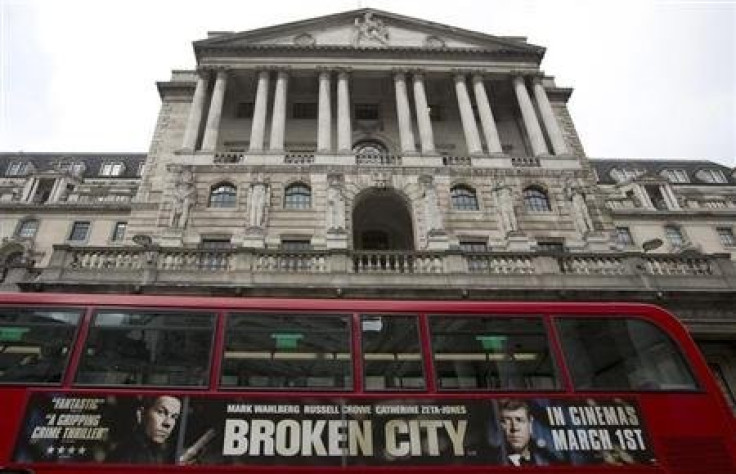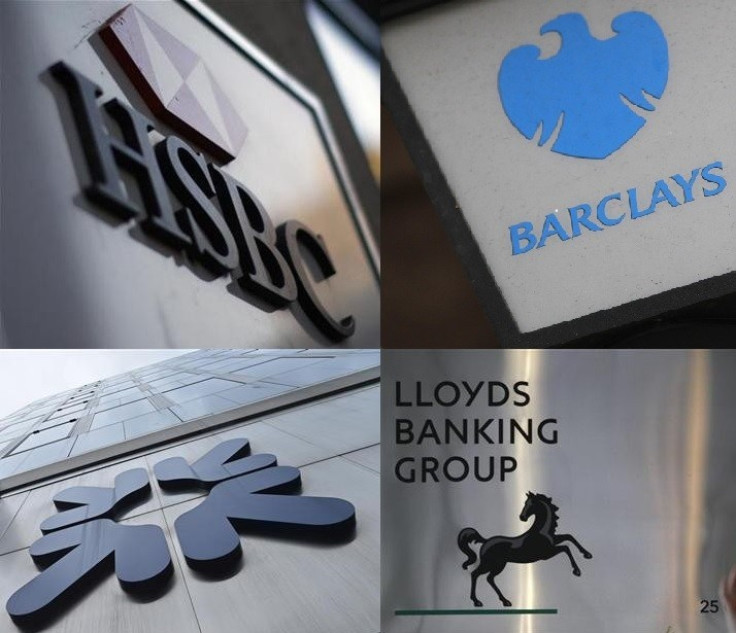Mission Impossible: UK Government Efforts to Get Banks Lending to Businesses Aren’t Working

There was a time, not that long ago, when entrepreneurs would put on their best clothes to meet their bank manager.
The banks were the only places able to lend to businesses, and would-be borrowers were cast in the role of supplicants, meekly accepting whatever terms they were offered.
That all changed in the boom years of credit, when the banks were happy to hand out loans, overdrafts and credit cards like sweets.
For a few heady years, 110% mortgages seemed quite normal as the housing bubble inflated, and any business with a half decent pitch could get a loan or an overdraft.
The 2008 credit crunch ended all that. A series of bad home loans made in America came home to roost - and broadsided the British lenders too.
With the rug pulled from under them, the banks suddenly pulled down the shutters and all but stopped lending.
Now the Dust has Settled

Half a decade on, little has changed. Despite a string of government schemes designed to nudge the banks back into lending, many are keeping their battered vaults firmly shut, even to well-run and successful businesses. The result is the stifling of many promising businesses and a serious drag on the economy.
You can't say Westminster hasn't tried to help. But its flurry of bright ideas - and clunky acronyms - designed to get the banks lending again has fallen flat.
First came the EFG, or Enterprise Finance Guarantee, created in the dying days of the Labour government. It offered government guarantees of up to 75% on business loans.
Then came Project Merlin. Despite its magical-sounding name, it proved anything but.
This agreement between the coalition government and Barclays, The Royal Bank of Scotland (RBS), HSBC and Lloyds Banking Group, set the "big four" banks the target of lending £76bn (€88bn, $117bn) to SMEs in 2011.
The target was missed, net lending to British businesses fell, and the costs businesses paid to borrow from the banks actually rose.
Pointing the Finger

True, in the depths of the recession fewer businesses wanted to borrow. Belt-tightening became a national sport and most firms concentrated on paying off their existing loans rather than taking on new debt.
Banks seized on this, and blamed the lack of lending on lack of demand from businesses.
But this excuse won't wash any more. Now the tumbleweed years are over, the economy is growing and ambitious businesses are keen to borrow again -either to help them expand or to keep on top of cashflow.
The latest government effort to encourage the banks to do more to help is the Funding for Lending Scheme (FLS). This provides the banks with cheap funds in return for commitments to lend.
It has put more money into the economy, and spurred mortgage lenders to reduce interest rates and relax their lending criteria. But some banks have used the cheap money on offer to shore up their loan books rather than lending it out.
Sadly the impact on business lending has been depressingly familiar. Official figures show that bank lending to business tumbled by £3bn in April, even as the interest rates they charged rose.
The Business Bank - White Knight or Another White Elephant?

Now finally the government has begun to look beyond the high street banks for the answer. It has accepted that the conventional credit pipeline is badly blocked, with many banks still unwilling - or unable - to lend to business.
Most won't consider lending to a business without significant assets and security - which rules out most of Britain's small firms.
In many cases, even when companies are offered a loan, the terms can be so prohibitive that they are just not practical.
That's why the government's plan to create a "Business Bank" is so much more encouraging. With nearly £4bn at its disposal, it will have some really impressive firepower.
It won't lend to business directly, but via new and existing lending channels - including non-bank lenders.
These include alternative sources of business finance, like crowdfunding, peer-to-peer lending and invoice trading - where companies auction off their unpaid invoices to investors as a way of generating instant cashflow.
These new types of lenders have seen explosive rates of growth as word of their existence spreads. My own business Platform Black is barely a year old, yet we're now advancing £1m a week to Britain's SMEs.
Even the Bank of England concedes that alternative finance providers are now making a significant contribution to new lending to business.
Variety is the Spice of Lending

No-one pretends that non-bank lenders are the only answer. After all, the mainstream banks still provide around 90% of all finance to SMEs.
The Business Bank will still place a heavy emphasis on conventional bank lending, but crucially it will also offer businesses genuinely impartial advice on all their options, including borrowing from other sources.
The UK is the only G8 country without an institution like the Business Bank, so its arrival can't come soon enough. It's a great shame that it won't be fully up and running until next year.
For now the government is expanding the FLS. While it has encouraged lenders to offer more mortgages, it has let Britain's businesses down badly.
Its narrow focus on the banks reinforces the misconception that only the banks can help. Britain's businesses are crying out for finance, yet the FLS overlooks the fact that an exciting range of alternative lenders has now sprung up to meet their needs.
Fortunately we're now a world way from the days of business owners having to go cap in hand to their bank manager.
Once they had no choice but to ask someone like Captain Mainwaring for a loan.
Now, for the first time, business owners can set the terms they want - and expect investors to compete to lend to them. Business lending has come a long, long way.
Louise Beaumont is the co-founder of the alternative finance provider for business, Platform Black.
© Copyright IBTimes 2024. All rights reserved.






